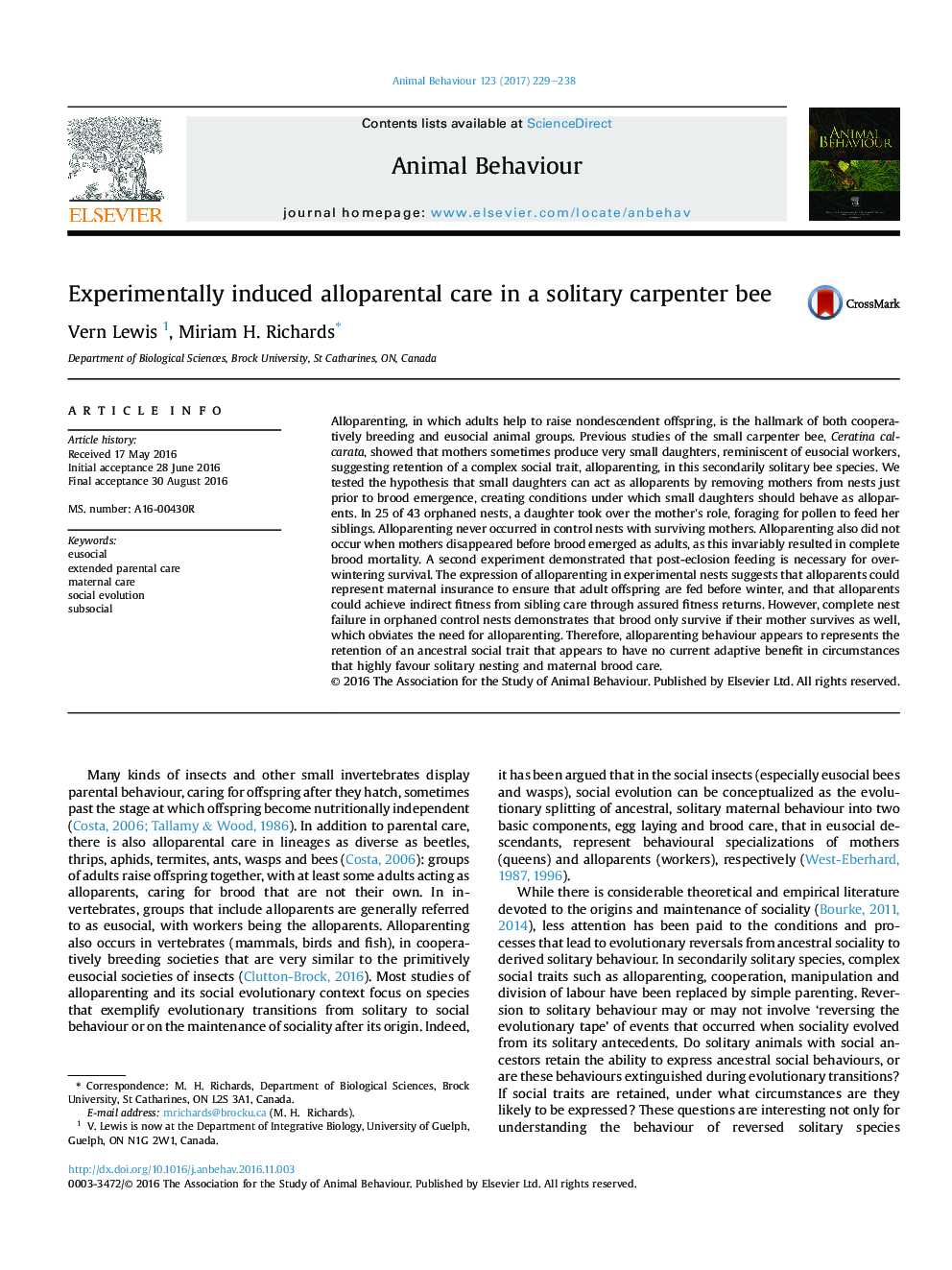| Article ID | Journal | Published Year | Pages | File Type |
|---|---|---|---|---|
| 5538587 | Animal Behaviour | 2017 | 10 Pages |
Abstract
Alloparenting, in which adults help to raise nondescendent offspring, is the hallmark of both cooperatively breeding and eusocial animal groups. Previous studies of the small carpenter bee, Ceratina calcarata, showed that mothers sometimes produce very small daughters, reminiscent of eusocial workers, suggesting retention of a complex social trait, alloparenting, in this secondarily solitary bee species. We tested the hypothesis that small daughters can act as alloparents by removing mothers from nests just prior to brood emergence, creating conditions under which small daughters should behave as alloparents. In 25 of 43 orphaned nests, a daughter took over the mother's role, foraging for pollen to feed her siblings. Alloparenting never occurred in control nests with surviving mothers. Alloparenting also did not occur when mothers disappeared before brood emerged as adults, as this invariably resulted in complete brood mortality. A second experiment demonstrated that post-eclosion feeding is necessary for overwintering survival. The expression of alloparenting in experimental nests suggests that alloparents could represent maternal insurance to ensure that adult offspring are fed before winter, and that alloparents could achieve indirect fitness from sibling care through assured fitness returns. However, complete nest failure in orphaned control nests demonstrates that brood only survive if their mother survives as well, which obviates the need for alloparenting. Therefore, alloparenting behaviour appears to represents the retention of an ancestral social trait that appears to have no current adaptive benefit in circumstances that highly favour solitary nesting and maternal brood care.
Related Topics
Life Sciences
Agricultural and Biological Sciences
Animal Science and Zoology
Authors
Vern Lewis, Miriam H. Richards,
